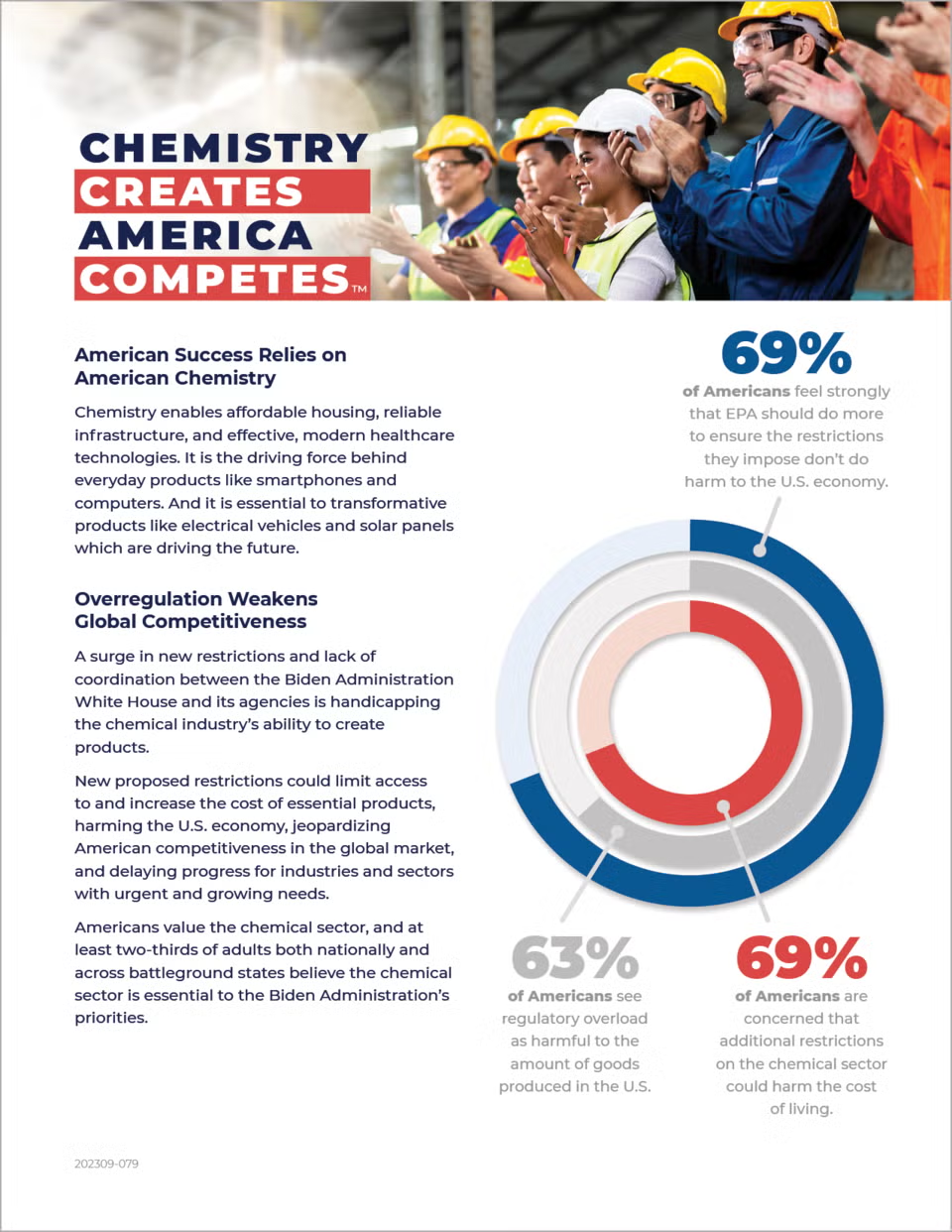Chemistry Creates, America Competes.
From supply chain, climate, and sustainability challenges to energy efficiency, power delivery, national security, and infrastructure needs, our nation depends on the products and innovations made by America’s chemical industry.
Chemistry enables electric vehicle production, semiconductors, affordable housing, reliable infrastructure, and effective, modern healthcare technologies. It is the driving force behind everyday products like smartphones and computers.
According to a Morning Consult poll conducted on behalf of ACC, 73% of North Carolinians, including 72% of Democrats, are concerned about the potential impact of increased restrictions on the U.S. chemical sector on local economies who depend on it for jobs and economic activity.
North Carolinians are right to be concerned since chemistry provides over 20,000 direct jobs and over 28,500 related jobs.




